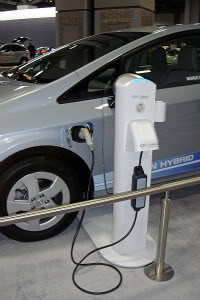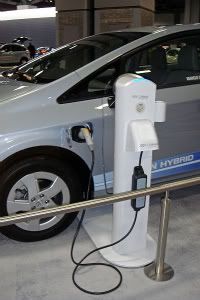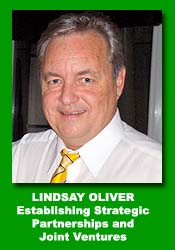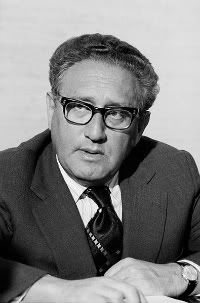Webinar on Electric Vehicles – Press Release
For those who missed April’s webinar on electric vehicles, here’s a press release that hits a few of the highlights.
In a webinar attended by interested participants all over the world, Craig Shields presented his views on the business aspects of electric transportation. Shields began by noting the importance of the transition from a purely practical standpoint. “Energy consumption is closely tied to GDP,” he told listeners. “So, as long as we’re concerned about economic growth and stability – as long as we’re not returning to our roots as an agrarian or hunter/gatherer society, we’ll need to generate and consume more energy. This creates the imperative to do so wisely, and EVs will play a huge role here.”
Shields went on to discuss the other aspects of electric transportation that make it so attractive, especially national security and health issues.
Of course, consumers normally make purchases for selfish reasons, and so predicting a bullish EV adoption curve means believing that the EV industry will develop an attractive value proposition. Craig sees that as a reality. “I predict 10% penetration by 2020 – a $250 billion market. I know there are people who disagree. But 78% of Americans commute less than 40 miles a day. As oil prices rise – and remain obscenely high — the common man is going to be highly motivated to own a car that will never take a drop of gas.”
Craig acknowledged that predictions in this area are all over the map, but he pointed out that shifts like this happen very quickly in our society nowadays. “When was the last time you rented a video? Bought a CD? Technology has almost completely obsoleted these industries that were huge just a few years ago.”
When the audience was asked to submit questions, they came in torrents. Shields addressed as many as he could squeeze into the hour-long session.
Shields admits that there are a few interesting open issues that remain. Sure, we’re witnessing a huge, messy divorce between Big Auto and Big Oil, but don’t think that ExxonMobil, Shell, Chevron, and so forth are going down without a fight. They’ll be around for many decades regardless of what happens. But they’re fighting hard to forestall the advent of EVs – and the renewable energy that will fuel them — to an ever-growing extent. “California’s Prop 23, which was funded almost exclusively by a few big oil companies, would have set the environmental movement back 30 years. Big Oil spent tens of millions of dollars promoting it, and it got about 47% of the popular vote. We came very close to extinguishing the entire push for clean air in this all-important state,” Shields said.
A key take-away from the webinar was the myriad types of businesses that will flourish as a result of the migration to electric transportation, including clean power generation, “telematics” (information services), smart-grid components, and billing services.
Of course, batteries are critically important. Shields continued: “As we achieve scale here, as we experience ongoing technology innovation, establish design standards, and remove cost from the supply chain, we’ll have battery costs at $300/kWh, which will enable EVs to be offered at terrifically attractive prices. Consumers will also see that corporate America is deploying EVs in bulk; I have to think people will be pretty impressed when they see large fleets owned by FedEx, Verizon, and Frito Lay and a dozen or so others. Sure, there are just so many early adopters. But soon you’ll see the pragmatists getting onboard.”
Craig closed with a few remarks about American Interest in Renewable Energy. “We feign concern about the national debt we’re leaving to our children, while borrowing an incremental $1 billion per day to buy foreign oil and sending it to regimes that are openly hostile of the US and its interests. We act like we’re concerned about unemployment, while ignoring the fact that the migration to clean energy will create three new jobs for every one that is lost. Expect to see this as a huge factor in the 2012 presidential election; Every credible candidate will have well-articulated (even if disingenuous) positions on the subject.”
Those wishing to view the archived webinar can do so here.
— Craig Shields is editor of 2GreenEnergy.com, and author of Renewable Energy – Facts and Fantasies (published by Clean Energy Press, 2010)

![[The Vector] The Department of Energy Weighs In](https://www.2greenenergy.com/wp-content/uploads/2011/04/capitol-courtesy-dreamstime.jpg)
 The U.S. Department of Energy (DOE) released a FACT SHEET on March 30th in concert with the President’s speech.
The U.S. Department of Energy (DOE) released a FACT SHEET on March 30th in concert with the President’s speech.




 I haven’t spent too much time covering the many progressive/activist groups in the renewable energy space. But it’s worth noting that
I haven’t spent too much time covering the many progressive/activist groups in the renewable energy space. But it’s worth noting that